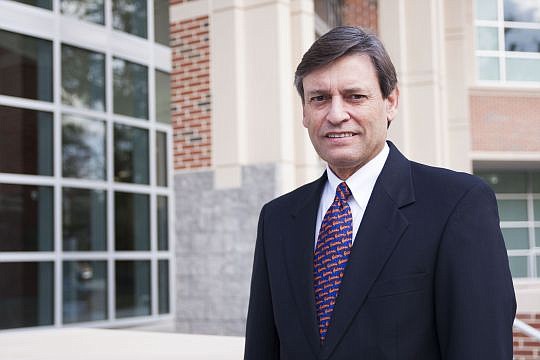
Florida Supreme Court Chief Justice Jorge Labarga will undergo surgery this month for removal of a kidney after being diagnosed with cancer, the court announced Friday.
The announcement did not specify a date for the surgery at UF Health Shands Hospital in Gainesville, but Labarga is expected to be hospitalized for seven days.
The announcement said he will start working remotely soon after surgery, with Barbara Pariente — the court’s longest-sitting member — serving as acting chief justice during any time he is incapacitated.
Labarga, 62, has served on the Supreme Court since 2009 and became its first Cuban-American chief justice last year.
“Doctors tell me that my prognosis is very good after surgery because the cancer was detected early by blood tests during a routine medical exam,’’ Labarga said in the announcement. “This is a big example of why regular testing is so important for everyone.”
Perhaps the most-pressing issue facing justices is a congressional redistricting case, which has included a majority of the court finding in July that eight districts violated anti-gerrymandering requirements.
The Legislature last month could not agree on redrawing district lines, which has tossed the issue back to the Supreme Court. It was not clear Friday whether the court will rule in the case before Labarga’s surgery.
Numerous other closely watched cases also are pending in the court. As an example, justices heard arguments this week on a proposed ballot initiative aimed at increasing the use of solar energy in the state.
As another example, business, labor and trial-lawyer groups are waiting for justices to rule on major workers-compensation insurance cases.
Aside from the cases, Labarga has made a priority as chief justice of trying to find ways to make the civil legal system more accessible to lower-income Floridians. The effort comes as legal-aid programs grapple with a shortage of funding.
Labarga, who was born in Cuba, was appointed to the Supreme Court by former Gov. Charlie Crist after serving as a Palm Beach County circuit judge and a brief stint on the 4th District Court of Appeal.
He and four other justices — Pariente, R. Fred Lewis, Peggy Quince and James E.C. Perry — have made up a relatively liberal court majority.
The court has frequently split 5-2 on issues such as the redistricting case, with the more-conservative Charles Canady and Ricky Polston in the minority.